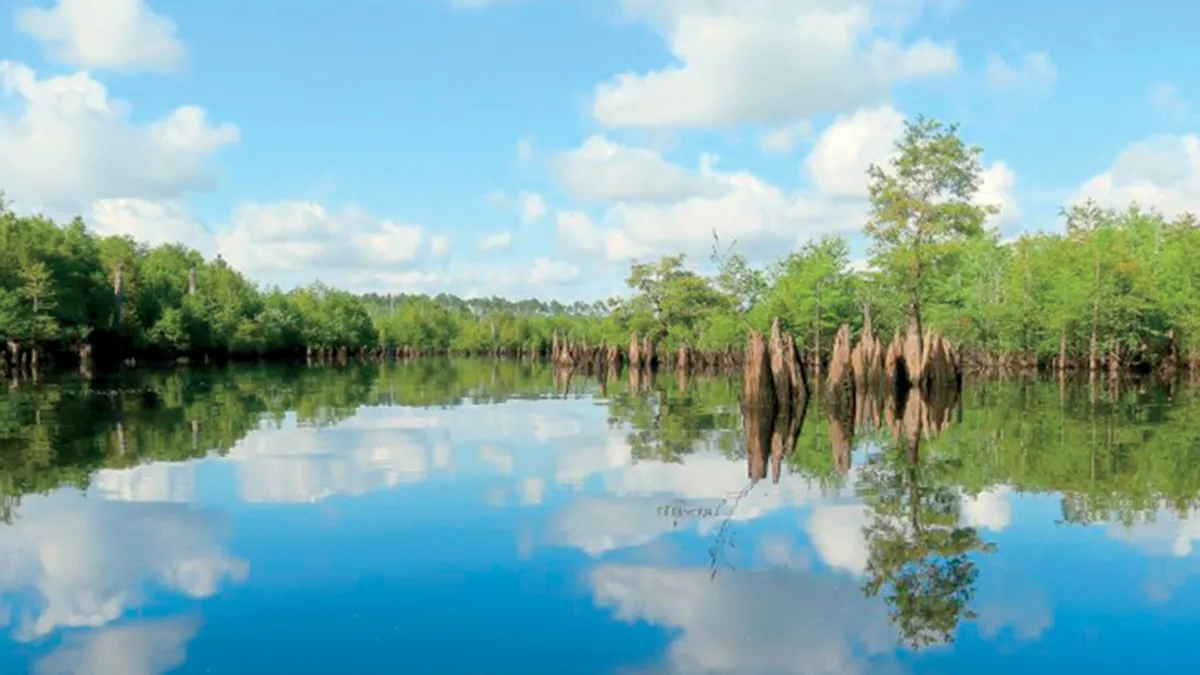
Florida environment agency denies permit to drill for oil near Apalachicola River
How did your country report this? Share your view in the comments.
Diverging Reports Breakdown
Florida environment agency denies permit to drill for oil near Apalachicola River
The Florida Department of Environmental Protection denied a permit to drill for oil near the Apalachicola River. The department last year issued a draft permit for Louisiana-based Clearwater Land & Minerals Fla. to drill an exploratory well in an unincorporated part of Calhoun County. An environmental group challenged the draft permit at the state Division of Administrative Hearings. An administrative law judge in April issued a 53-page recommended order that said the permit should be denied. Under administrative law, the issue then went back to the department for a final decision. The company can appeal the final order to the 1st District Court or Appeal. The case has drawn attention, at least in part, because the state and federal governments have long taken steps to try to protect the river and Apalachiola Bay, which are part of the Georgia-Alabama-Flint river system. The bill has not been formally sent to Gov. Ron DeSantis for his consideration, but it is expected to be introduced soon.
The department last year issued a draft permit for Louisiana-based Clearwater Land & Minerals Fla. to drill an exploratory well in an unincorporated part of Calhoun County, which is between Tallahassee and Panama City. But the environmental group Apalachicola Riverkeeper challenged the draft permit at the state Division of Administrative Hearings.
Judge Lawrence P. Stevenson in April issued a 53-page recommended order that said the permit should be denied. Under administrative law, the issue then went back to the department for a final decision.
Monday’s order rejected a series of arguments that Clearwater Land & Minerals raised about Stevenson’s recommendations. As an example, one of the issues involved what is known as a “balancing test” in state law that requires balancing environmental interests against the right to explore for oil, the order said.
“Clearwater does not dispute the recommended order’s findings are supported by competent substantial evidence; rather, it suggests the ALJ (administrative law judge) should have given more weight to its evidence and made findings that would have been more beneficial to its case,” the final order said. “Be that as it may, the department is limited to the ALJ’s findings when applying the … balancing criteria, and none of these findings weigh in favor of issuing Clearwater the drilling permit.”
The company can appeal the final order to the 1st District Court or Appeal.
The case has drawn attention, at least in part, because the state and federal governments have long taken steps to try to protect the Apalachicola River and Apalachicola Bay. They are part of the Apalachicola-Chattahoochee-Flint river system, which starts in northern Georgia, crosses into Alabama and ends in Apalachicola Bay in Franklin County.
Stevenson wrote that the proposed site was within the 100-year floodplain of the Apalachicola River, was within a mile of two ponds that are hydrologically connected to the river and was surrounded by swamplands. In addressing the draft permit issued last year, he said the “DEP and Clearwater took an exceedingly narrow view of the scope of the project for purposes of environmental review, limiting it to the immediate location of the drilling pad on the site.”
“A spill would have catastrophic consequences due to the proximity of the well to nearby streams, wetlands and ponds,” Stevenson wrote.
The debate about the project also flared during this year’s legislative session, with opponents arguing that an oil spill into the river could harm the oyster industry and businesses in the Apalachicola Bay area.
Keep up with Tampa Bay’s top headlines Subscribe to our free DayStarter newsletter We’ll deliver the latest news and information you need to know every morning. Loading… You’re all signed up! Want more of our free, weekly newsletters in your inbox? Let’s get started. Explore all your options
Lawmakers passed a measure (HB 1143) that would effectively prevent drilling within 10 miles of the Apalachicola National Estuarine Research Reserve. The bill has not been formally sent to Gov. Ron DeSantis for his consideration.
While relatively unusual for Florida, companies have long drilled for oil around the Santa Rosa County community of Jay and in parts of Southwest Florida. The Department of Environmental Protection in 2019 approved a permit for another company on the same Calhoun County site. But that company, Cholla Petroleum, did not end up drilling, Stevenson wrote in his recommended order.
In a document filed in February in the case, the department pointed to safeguards, such as berms at the site, that it said would prevent release of pollutants.
“From a broader perspective, the ‘lands involved,’ i.e. the area of the well pad and the parcel described in the application, are within the Apalachicola River basin,” the department document said. “However, given the location and redundant systems for retaining potential discharges of pollutants at the well pad, the lands involved have no special characteristics that might make them susceptible to pollution.”
Stevenson, however, took issue with such arguments. For example, he cited a rule about permitting in “sensitive areas.”
“DEP’s focus on the footprint of the site is understandable in the sense that the site is where the drilling will occur and is the only area over which Clearwater has control,” he wrote. “However, the quoted rule requires the applicant to ‘make every effort to minimize related impacts,’ presumably including impacts beyond the site itself. The rule does not require DEP to don blinkers and pretend that the ‘related impacts’ of the proposed permit cannot extend beyond the site.”
Source: https://www.tampabay.com/news/environment/2025/06/17/apalachicola-river-oil-drilling-florida-dep/
